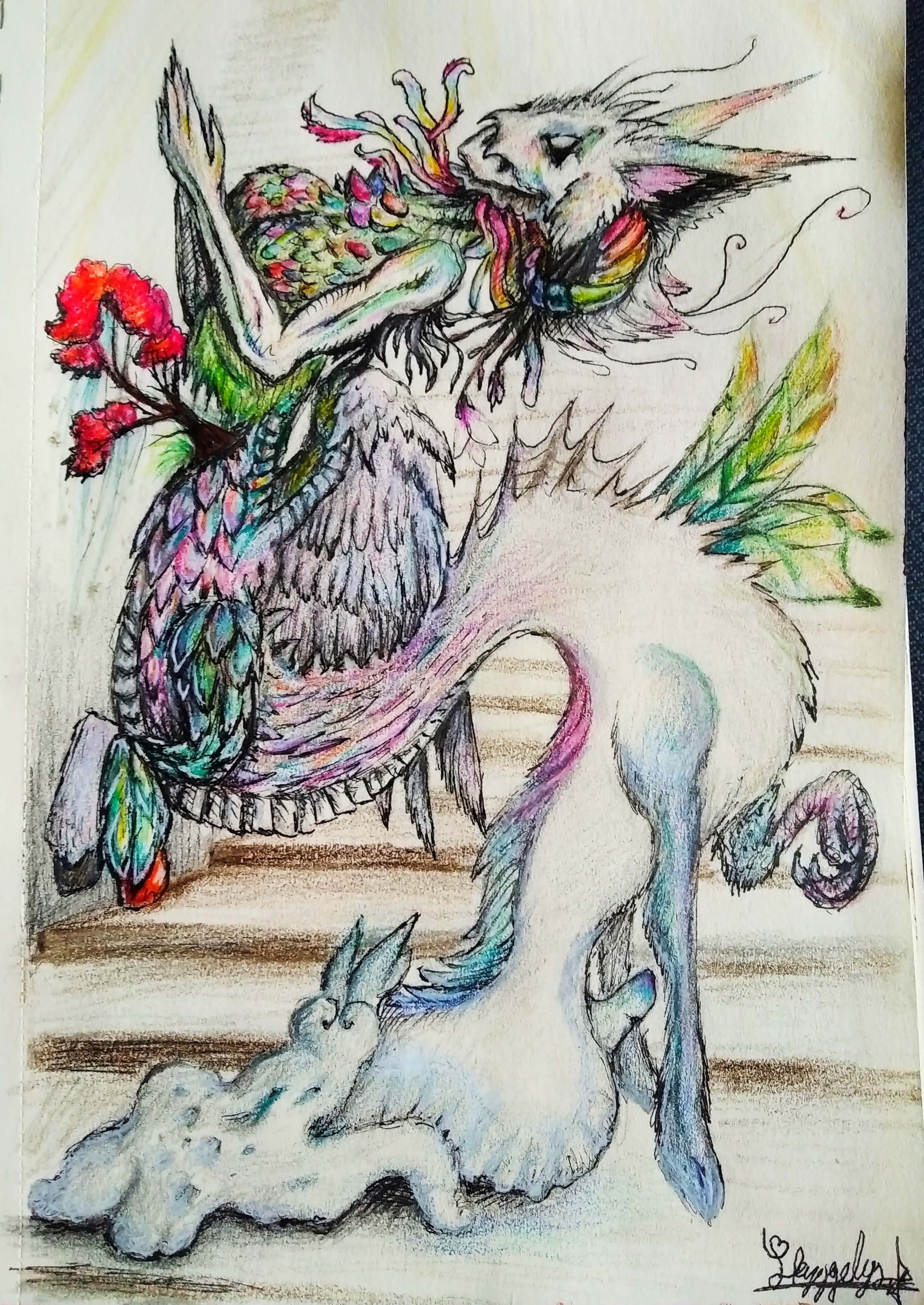Á Bao A Qu on:
[Wikipedia]
[Google]
[Amazon]
 A Bao A Qu is a legendary
A Bao A Qu is a legendary
 A Bao A Qu is a legendary
A Bao A Qu is a legendary Mewar
Mewar or Mewad is a region in the south-central part of Rajasthan state of India. It includes the present-day districts of Bhilwara, Chittorgarh, Pratapgarh, Rajsamand, Udaipur, Pirawa Tehsil of Jhalawar District of Rajasthan, Neemuch and Man ...
creature described in Jorge Luis Borges
Jorge Francisco Isidoro Luis Borges Acevedo (; ; 24 August 1899 – 14 June 1986) was an Argentine short-story writer, essayist, poet and translator, as well as a key figure in Spanish-language and international literature. His best-known bo ...
's 1967 ''Book of Imaginary Beings
The ''Book of Imaginary Beings'' was written by Jorge Luis Borges with Margarita Guerrero and published in 1957 under the original Spanish title ''Manual de zoología fantástica''. The subsequent English version contains descriptions of 120 myt ...
''. Borges claimed to have found it either in an introduction to the ''Arabian Nights
''One Thousand and One Nights'' ( ar, أَلْفُ لَيْلَةٍ وَلَيْلَةٌ, italic=yes, ) is a collection of Middle Eastern folk tales compiled in Arabic during the Islamic Golden Age. It is often known in English as the ''Arabian ...
'' by Richard Francis Burton
Sir Richard Francis Burton (; 19 March 1821 – 20 October 1890) was a British explorer, writer, orientalist scholar,and soldier. He was famed for his travels and explorations in Asia, Africa, and the Americas, as well as his extraordinary kn ...
, or in the book ''On Malay Witchcraft'' (1937) by C.C. Iturvuru. The Burton reference was given in the original Spanish, but it was changed to the Iturvuru reference in the English text, possibly to make it sound more exotic, or as a reference to Borges' friend C. C. Iturburu. The writer Antares conjectures that Borges's tale might be inspired by Orang Asli
Orang Asli (''lit''. "first people", "native people", "original people", "aborigines people" or "aboriginal people" in Malay) are a heterogeneous indigenous population forming a national minority in Malaysia. They are the oldest inhabitants of ...
myth, and that "A Bao A Qu" is a slurring of ''abang aku'' meaning "my elder brother".
In Borges's story, the A Bao A Qu lives on the steps of the Tower of Victory in Chitor
Chittorgarh (also Chittor or Chittaurgarh) is a major city in Rajasthan state of western India. It lies on the Berach River, a tributary of the Banas, and is the administrative headquarters of Chittorgarh District. It was a major stronghol ...
, from the top of which one can see "the loveliest landscape in the world". The A Bao A Qu waits on the first step for a man brave enough to try to climb up. Until that point, it lies sleeping, shapeless and translucent, until someone passes. Then, when a man starts climbing, the creature wakes, and follows close behind. As it progresses further and further up, it begins to become clearer and more colorful. It gives off a blue light which increases as it ascends. But it only reaches perfection when the climber reaches the top, and achieves Nirvana
( , , ; sa, ý§®ý§øý§∞ý•çý§µý§æý§£} ''nirvƒÅ·πáa'' ; Pali: ''nibbƒÅna''; Prakrit: ''·πáivvƒÅ·πáa''; literally, "blown out", as in an oil lampRichard Gombrich, ''Theravada Buddhism: A Social History from Ancient BenƒÅres to Modern Colombo.' ...
, so his acts don't cast any shadows. But almost all the time, the climber cannot reach the top, for they are not perfect. When the A Bao A Qu realizes this, it hangs back, losing color and visibility, and tumbles back down the staircase until it reaches the bottom, once more dormant and shapeless. In doing so, it gives a small cry, so soft that it sounds similar to the rustling of silk. When touched, it feels like the fuzz on the skin of a peach. Only once in its everlasting life has the A Bao A Qu reached its destination at the top of the tower.
References
{{DEFAULTSORT:A Bao A Qu Fictional mammals Jorge Luis Borges